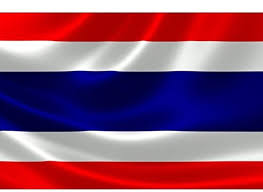When will the European Commission decide to put an end to this mafia system which has lasted for too long, which squanders European public funds, and is enriched on the back of the misery of refugees who do not even have a refugee card, and make the Algerian state face up to its responsibilities?
When will the European Commission put an end to the continued diversion of humanitarian aid in the Tindouf Camps in Algeria?


The publication of a comprehensive and impactful journalistic investigation supported by overwhelming testimony and tangible evidence on June 30th rattled the cages of the EU institutions and prompted MEPs to turn on the European Commission over its handling of the ongoing scandal of the misappropriation of European taxpayer-funded humanitarian aid.
During a meeting of the European Parliament’s Committee on Development (DEVE) on July 2nd, I addressed the European Crisis Management Commissioner in charge of humanitarian aid, Janez Lenarčič, on the subject, strongly denouncing this fraudulent and unacceptable state of affairs, and calling for a thorough investigation.
Much of the humanitarian aid intended for refugees from the Western Sahara has been sold to help purchase military equipment, such as tanks and missiles. The European Union is maybe contributing to the arming of an entity – the Polisario front, which controls the camps, and the distribution of aid – against a sovereign state and valued partner, Morocco, contributing to the destabilisation of the whole region.
In order to generate as much income as possible, the numbers of the refugees have been greatly overstated: since 1977, Algeria and Polisario have refused to allow a census of those present in Tindouf, as has been requested by UNHCR – the UN agency responsible for refugee matters. Both Polisario and the Algerian government have benefited greatly from this fraud, with the latter cynically levying a tax of 5% on the aid.
Commissioner Lenarčič’s response has not been satisfactory; however I hope that the increased media coverage of these hijackings will finally push the Commission to put an end to these abuses and I, for my part, will continue to monitor this matter closely.
Disgracefully, the Commission had been aware of this problem possibly since 2003 when the EU’s Anti-Fraud Office (OLAF) began a four-year investigation into the “well-organised, years-long” embezzlement. The report itself was effectively “forgotten” until 2015 when a copy was obtained by Agence France-Presse (AFP).
My fellow MEP Nicolas Bay has also raised the question in his communiqué of the 1st July: “Morocco has always been a reliable ally of France and the European Union, especially in the fight against Islamist terrorism. Why is Brussels refusing to investigate these acts despite the accumulating evidence? Why does the EU continue to send nearly 10 million euros per year of material to a camp of which it does not even know the real number of refugees? This money is that of the taxpayers of European countries: it is time to demand accountability from Brussels and Algeria!” he has asked.
Previously, I had raised the issue of the diversion of aid with Christos Stylianides, then European Commissioner responsible for humanitarian aid and crisis management. This was in the context of Nigeria’s ban on the activity of several NGOs in the area of conflict with Boko Haram. At the time, I stressed the need for greater control over the future of European aid in conflict zones, multiple cases of diversion having being proven. I never received an adequate response.
The question of the monitoring, the effectiveness and the transparency of such aid is in my opinion essential, since the diversions harm both the intended beneficiaries and the European taxpayer, whilst potentially fuelling conflicts or funding terrorist groups, as the case may be.
The civilian populations who should have the right to access this aid are in reality deprived of it. The sources I have relied on report very serious human rights abuses. Lately, the coronavirus epidemic has made the situation even worse, although it is impossible to obtain accurate information on this point.
The intervention having been presented on Thursday 2nd July, it is a bit early to tell about the action of the Identity and Democracy group in the long term. On the other hand, I am already preparing a motion for a resolution for the DEVE committee, which I will follow up on, and I will do my utmost to ensure that the subject is raised in other competent parliamentary committees in the coming weeks.
Finally, on our side, we wonder when the European Parliament will react – in particular the Budgetary Control Committee which will have a meeting today, Monday July 6th, at 1:45 pm with OLAF officials, who must be called to account and conduct a thorough investigation.
The European Union must take responsibility for taxpayers’ money, and it is obvious that humanitarian aid must be subject to a census of the refugees who benefit from it and to rigorous monitoring of its use.
When will the European Commission decide to put an end to this mafia system which has lasted for too long, which squanders European public funds, and is enriched on the back of the misery of refugees who do not even have a refugee card, and make the Algerian state face up to its responsibilities?

 বাংলা
বাংলা  Spanish
Spanish  Arabic
Arabic  French
French  Chinese
Chinese  Thai
Thai 
